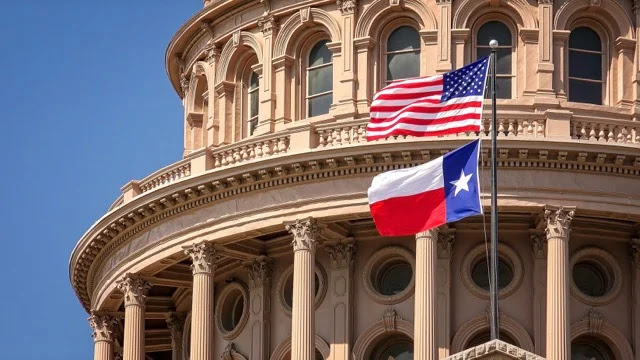The Texas Legislature is poised to approve a $336 billion budget for the 2026–2027 biennium, but first, House lawmakers will face off Thursday night in a marathon session known at the Capitol as “budget night.” With nearly 400 proposed amendments on the table, lawmakers are gearing up for one of the most grueling — and politically charged — days of the legislative session.
At stake is more than just the passage of a constitutionally required budget. Thursday’s debate offers members a rare opportunity to fight for pet projects, attempt policy pivots, and showcase their district priorities — all while trying to shift billions around the state’s massive spending plan.
Big-Ticket Items and Sharp Differences
The House’s version of the budget is slightly more generous than the Senate’s, clocking in $1.3 billion higher, primarily due to increased funding for public education. The topline numbers include:
$6 billion in new property tax relief
$4.3 billion for teacher pay raises
$6.5 billion for border security
$1 billion for the Education Savings Account (ESA) program
$500 million for film and television incentives through the Texas Moving Image Incentive Program
However, the House and Senate are taking different approaches on several key issues, particularly property tax cuts. While the Senate favors raising the standard homestead exemption to $40,000 along with modest business tax relief, the House is backing a more aggressive increase in the business personal property tax exemption. Talks are ongoing between Lt. Gov. Dan Patrick and House Speaker Dustin Burrows (R-Lubbock) on a possible $50,000 homestead exemption boost for seniors and disabled Texans.
Another sticking point: the Texas Energy Fund. The Senate wants a $5 billion investment; the House has only earmarked $2 billion so far.
Amendments Galore — and the Graveyard Awaits
Over 80 lawmakers have filed amendments, covering everything from infrastructure tweaks to cultural policy shifts. But not all proposals are expected to survive the night. Many will likely be ruled out of order or later gutted in conference committee — or relegated to Article XI, the so-called “budget graveyard.”
Notable amendments include:
Rep. Richard Hayes (R-Denton): Reallocating $6.7 million from the Commission on the Arts to boost retirement pay for judges.
Rep. Diego Bernal (D-San Antonio): Using surplus funds exclusively to raise public school teacher pay.
Rep. John Bryant (D-Dallas): Repealing the state ban on Diversity, Equity, and Inclusion (DEI) programs at universities.
Rep. Mitch Little (R-Lewisville): Multiple proposals including restoring AG Ken Paxton’s withheld salary during his 2023 suspension, shifting $4 million from the Lottery Commission to the Attorney General’s office, and granting all OAG employees a 6% raise.
Rep. Brent Money (R-Greenville): Blocking tax dollars from being used for abortion services.
Rep. Briscoe Cain (R-Deer Park): Prohibiting any state funds from paying federal lobbyists.
While some amendments are deeply partisan, others reflect more local concerns. Many lawmakers are aiming to carve out funding for regional infrastructure or healthcare initiatives — though these often face procedural hurdles or get buried in broader budget negotiations.
Policy Testing Ground
Some amendments are being used as early test votes ahead of bigger policy battles. Rep. John Bucy (D-Austin) is reviving the push for Medicaid expansion, a long-shot effort in the Republican-dominated chamber but one that remains politically resonant among Democrats.
A potential fight over the ESA program — a school voucher-style initiative — fizzled after Rep. Donna Howard (D-Austin) withdrew her amendment to cap appropriations. She cited timing and legislative procedure, noting she would bring it back under separate legislation next week.
A Long Night Ahead — or Maybe Not?
Traditionally, budget night stretches into the early hours of the morning as lawmakers slog through amendment after amendment. But last session, the House wrapped the process in just 12 hours by sweeping remaining proposals into Article XI — ending debate swiftly. Some insiders suggest a similar strategy could be used tonight, with whispers of wrapping things up by dinner.
Still, the budget process is far from over. Whatever version the House passes will head to a conference committee, where top negotiators from both chambers will hammer out final details behind closed doors.











